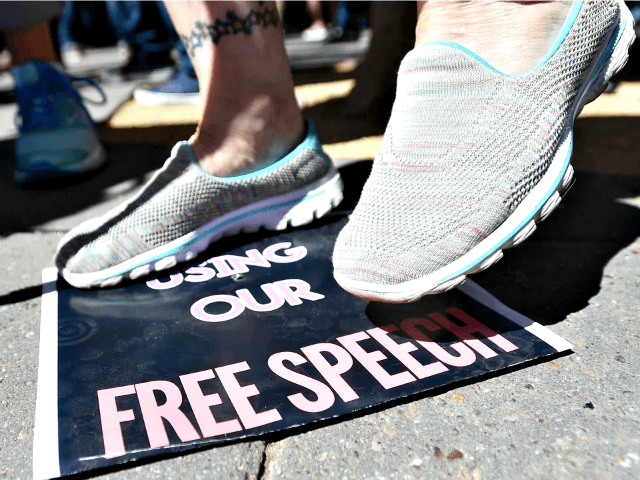A new study by the Foundation for Individual Rights in Education (FIRE) found that 88 percent of American colleges maintain policies that restrict speech protected under the First Amendment, and that half of top American colleges and universities maintain policies that restrict online expression protected under First Amendment standards.
A national survey that analyzed the written policies at 478 of America’s top institutions for their protection of free speech has found that 9 in 10 colleges restrict free speech in some capacity, according to a report by FIRE.
“These policies have real-world consequences,” said Laura Beltz, author of the report and a senior program officer for policy reform at FIRE. “Students and professors around the country face punishment for speech that is clearly protected by the First Amendment or a school’s free speech promises.”
In one incident, for example, a student at Stockton University faced possible suspension and other disciplinary charges for making his Zoom background a photo of President Donald Trump, which the university claimed caused other students “to feel offended, disrespected, and taunted.”
The school eventually backed down following FIRE’s public involvement and media exposure.
According to FIRE, Stockton is just one of nearly 200 public institutions that maintain online speech policies running afoul of the First Amendment.
In examining these universities, the organization found that policies either restrict or can be interpreted to restrict free speech.
The University of Colorado Denver, for example, has a policy banning students from sending or storing emails with messages that could be “considered offensive.” What constitutes as “offensive” can be open to interpretation.
As for Fordham University, it maintains a policy banning the use of any IT resource — even off-campus — “to intimidate, insult, embarrass, or harass others.” While speech that meets the legal standard for intimidation and unlawful harassment is not protected under the First Amendment, banning online speech that might “insult” or “embarrass” others includes protected speech.
The organization added that while only public schools are legally bound to uphold students’ First Amendment rights, private institutions are bound by their promises of free expression.
At Drexel University, the use of “offensive language” is considered an abuse of email privileges that could result in “de-activation of the account (for minor first offenses) through university judicial action or referral to law enforcement authorities.”
At Carleton College, students are prohibited from “distributing material which is demeaning.” The school’s policy also bans using information technology resources for “political purposes.”
Meanwhile, the College of the Holy Cross tells students that “obscene or intolerant language, as well as offensive images” are prohibited, and makes clear that “the determination of what is obscene, offensive or intolerant is within the sole discretion of the College.”
According to FIRE, a paltry 12 percent of institutions across the country, only 56 schools, do not maintain policies that compromise student expression.
You can follow Alana Mastrangelo on Facebook and Twitter at @ARmastrangelo, on Parler at @alana, and on Instagram.

COMMENTS
Please let us know if you're having issues with commenting.